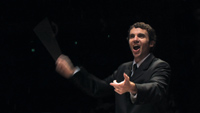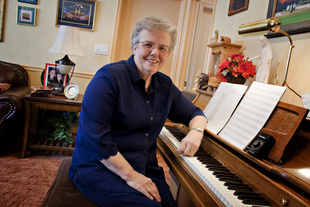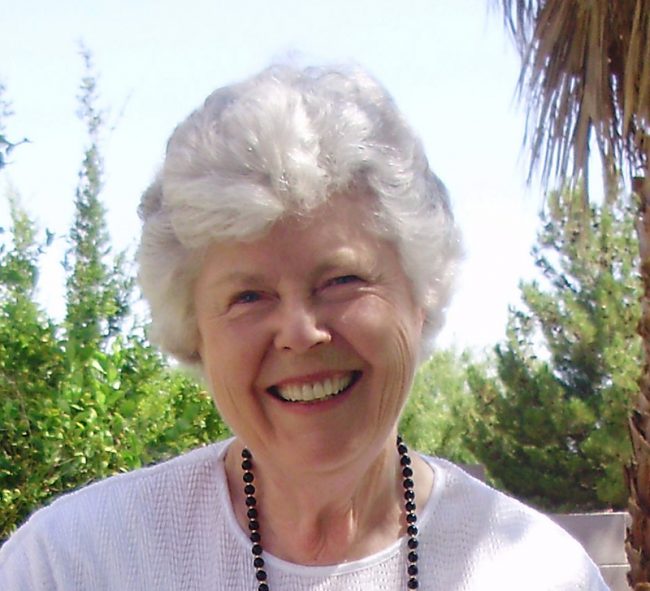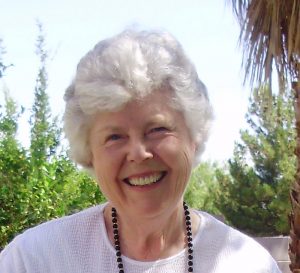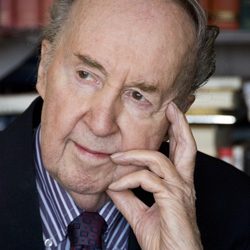(This is an interview that was originally published in 2009 on mormonartist.com. Interview by Ashley Pacini. Posted with permission.)

How did your upbringing make you who you are today?
I grew up in Mesa, Arizona. There are nine children in my family: five boys and four girls. I’m number six. My mom plays the piano and sings a little bit, and my dad sings, but I wouldn’t call us a musical family. I wasn’t heavily involved in music growing up. My mom required us all to take an instrument starting in fifth grade, which we were required to play until we got to high school. Because my two older brothers had both played the trumpet, it wasn’t really a choice, so I picked the trumpet. I played from fifth grade until eighth grade. In eighth grade some friends convinced me to try out for the musical at our junior high, The Wizard of Oz. At the end of the show, the choir director recommended that a friend and I join the choir. We did, and we had a lot of fun. We continued doing it in high school as well.
During our senior year, seven of us decided to sing an a capella song for the talent show. For some reason people thought we were good and started asking us to perform everywhere. Our a capella group, which we called 2-5-9, ended up being a way bigger deal than we ever intended it to be; we ended up recording five albums and touring the States. We did it before our missions, and then we all went to BYU, so we recorded three more albums after that. I credit that experience—being able to make several albums and do performances—to giving me the confidence and the know-how to be able to go off and do some of my own albums and be able to produce. Other than three years of piano in high school and an orchestration class I audited at BYU, I don’t have a lot of other formal training.
What is Spire Music Company, and how did it get started?
It began when I was in college, probably my second year at BYU; we were still doing the a capella stuff at the time, and I had written one piece called He Is Jesus Christ on my mission at the request of my mission president. When I came home, I translated He Is Jesus Christ from French into English and performed it around here before I went to BYU. When I got to BYU, a few friends who were there recommended that I do He Is Jesus Christ in Utah. The friends actually happened to be in the music program, and they were able to find some good soloists. We started performing He Is Jesus Christ in the Provo Tabernacle and in the de Jong Concert Hall on campus. We were doing performances all the time because people really responded to it. We just had volunteer choirs and volunteer orchestras, and the places were packed. It was really cool to see these things happening.
Because there were so many volunteers, concerts only cost a couple hundred dollars in the beginning. It wasn’t a huge expense, but it kept getting more and more expensive. I really wanted to record an album, but that is extremely expensive when you’ve got a full orchestra and all that involves. So, I had this naive thought: “I should just start a non-profit, because then people would give us donations.” I talked to a couple of friends who agreed. I sent out a letter to a bunch of my friends’ parents, explaining what I would be doing, and asking for donations. A few of those friends’ parents wrote back saying, “Good luck, because this is not going to happen—it’s difficult to do a non-profit.” But we filed with the IRS and got approval. A lot of those friends’ parents were able to write us checks, and we were able to raise a little bit of money. That was the beginning of Spire Music. We started there and nine years later we’re still growing; we’ve proved our naysayers wrong. People have continually responded positively to what we have to offer. It’s been an interesting road.
What kind of music do you write?
I personally don’t have a lot of love for “sacred music” that doesn’t sound sacred. There is a place for that, and obviously there’s a market for it, so more power to those artists. But for me, personally, I respond to sacred music that sounds sacred—that can be performed in sacrament meeting without feeling funny. I feel that there is a want and a need to have something more sacred, and that I can provide it.
At the same time, I like to salt-and-pepper things; I’ll do a sacred project, and then I’ll do something different. As a composer in the sacred niche, I have a love of writing sacred music, but there’s only so much you can write. I played in a rock band in high school and in college a little bit with friends, and I really love that kind of music. I’ve done some film scores, and I’ve also done a musical called Blackbeard. My goal now is to make my money in the secular world and be able to consecrate some of my time to doing some sacred projects as well. Secular music also gives me an outlet. If I were writing sacred music all the time, it would not only get dull, but I wouldn’t have enough topics to deal with. In some ways, I look at it as a really great way to do missionary work. Those who hear my secular music inevitably find my sacred music. It’s cool to see that music in the hands of people who normally wouldn’t ever listen to something like that.

What have been some of the challenges you’ve run into trying to pursue music and composing?
It’s nothing but challenges when it comes down to it. The hard part with the sacred music is that it is difficult to even get your stuff out on the store shelves. I’ve been told that classical music doesn’t sell. We’ve had a distribution deal for a long time, but because of some business things and just the way some things were handled, I pulled back recently, and we’re doing it on our own again, now. There’s good and bad to that, but it is a challenge. For independent artists like me, it’s really just down to word of mouth. In a normal music world, you could do all sorts of marketing things; but in the sacred music world, there’s not really an outlet to get the word out there. In spite of this, we’ve had excellent word of mouth, and we always pack our concerts. We’ve definitely sold a good number of albums of everything we’ve done, and my goal is always, whenever I put money into something, to make every penny of it back. I’ve proven that there are people who thirst after this kind of music. I love that the Mormon Tabernacle Choir has their own label and they put out tons of really great music that’s definitely “classical.” They have also proven that there’s a major hunger for what we’re doing. It makes me really happy to see that others are taking on that goal as well.
In addition, there are always financial challenges to getting things done. “Do I charge an admission price or do it for free?” I’d like to do concerts for free, just because I want everybody to be able to come; but sometimes when you spend as much money as you have to, you’ve got to charge an admission price, or else there’s no way you would make it. I’m lucky to have a lot of support from donors to make the concerts possible; but at the same time, those are challenges to overcome. There’s also a really difficult fine line to walk when you’re dealing with sacred stuff, because people are concerned about commercializing sacred things. That’s why I started Spire Music as a non-profit in the first place—I wanted it to feel as pure as possible; I didn’t want it to be a commercial venture. But in the end, the money has to come from somewhere. Even non-profits need money, or they’re not going to last very long. So there are a lot of challenges, but they’re usually overcome through a lot of work and dedication, and they’re usually ultimately worth the pain that we go through.
Who do you see as your audience?
As a composer, I don’t really write with a specific audience in mind. I try to take off my marketer hat when I do that. When I write, it’s not really worth my while to sit down and write unless I enjoy what I’m writing—unless what I’m writing speaks to me. In that sense, I’m writing to myself. If I don’t like it, chances are no one else is going to like it, either. I think we all are very alike in the end. For some reason, the stuff I’ve written seems to appeal to a major cross-section of the population, and that speaks to the power that music can have. It is the marketer’s major no-no to say, “My market is everybody”—you’re supposed to focus on the demographics; but I really love that it does speak to everybody, no matter their age, no matter what kind of music they love. Maybe that’s the Spirit. For some reason, the four year olds all the way up to eighty-five year olds just really soak this up, and I love that, personally.
You play to a certain group commercially, but in the end you hope your stuff goes to everybody. That’s when I feel successful, when someone says, “I hate this kind of thing,” and then they love yours.
How do you prefer to have your music performed?
When I did Blackbeard, it was a fully blown production with costumes, makeup, and sets. There are a lot of stakes and institutes that have done my sacred work like that as well. Sometimes there’ll be a little vignette acted out, and that works; some people feel like that makes it even more powerful. But with sacred music, I tend to like to do it as a concert, where people are in concert dress. I want to get rid of anything that could possibly distract the audience from the message itself. What I’ve found is that there’s so much power in just standing up there and singing your testimony. With the full choir, the full orchestra, and everything, there’s already enough to fill the senses that anything else just gets in the way. So it makes it simpler, and it makes it a little more pure, in my opinion; but that’s just my opinion, again.
Tell us more about Blackbeard.
It’s actually the third musical I’ve done. It happened right before I quit my job; I had just finished Saints and Pioneers, and I was really itching to do something totally different from the things I’d done before. I was watching the History Channel at lunch one day, and they were doing this special on the real pirates of the Caribbean. One of them was Blackbeard. I’d heard the name Blackbeard before, but I didn’t even know if he was a real person or a legend. The ten-minute segment they did on him was fascinating. It was just the greatest story I had ever heard, and I started researching it. It had all the elements of love, and good vs. evil, and pirates, and all this fun stuff, and I said, “Okay, this has to be done. Someone has to make it—it’s such a great story.”
I went down to BYU, and within an hour and a half I had basically flushed out four or five different songs and melodies. Whenever that happens, I think, “Yeah this is something I need to work on.” I quit my job a few months later, because I felt that strongly about working on it. I still do. So, I came back home to Mesa and started working on it. I have a relationship with the college here—they’ve premiered a couple of my other pieces—and they premiered it, and they loved it. This year I rewrote it, changed some things, and produced it myself through Spire. We have done fifteen performances, we’ve spent a gazillion dollars running it, and every time it’s been a great experience. And again, we’ve gotten a great response from it. So we’re trying to raise money to get it to Broadway. I’m really excited about it.

Where do you see yourself in the future?
I just found out that I’ve been accepted to the University of Southern California for their film composition program. That’s always been an ambition of mine; I love to write dramatic music. If that leads to a career in writing for film, that would be wonderful. If it doesn’t, no big deal. I don’t have just one thing that I want to do. I’m not dead set on writing music for film or writing something for Broadway; there is no end-all project for me—I’d love to try it all.
But I will always come back to sacred projects. I’ve made that commitment to myself and to God, and I know my talents are given to me for a reason. There’s just nothing like standing in front of an audience of 2,000 people with a choir and orchestra on the same page presenting something like Joseph Smith the Prophet or He Is Jesus Christ, and turning around to see the audience’s reaction and to hear them afterward express the feelings they had. I just love knowing that, at the end of the day, I did something for somebody that’s positive. I made them forget about their troubles or made them have a stronger testimony of the truth. It’s wonderful to make people’s lives a little better, even if it’s just for a couple of hours.
How does the gospel influence both your art and you as an artist?
Last year I got the amazing opportunity to do Joseph Smith the Prophet at the Salt Lake Tabernacle. President Monson, President Uchtdorf, and Elder Nelson were there and had an amazing experience. Just before that, I met with the head of music at the Church, David Warner, and he said to me, “You know, we have to be careful as artists, because we have a power that God and Satan both know is extremely powerful: to be able to influence people through music. Satan knows that, and he will go after us really hard.” The gospel influences what you write and how you write. I’ve thought about the potential for difficulty, especially when I’m doing secular stuff. If I bring something to Broadway and producers suggest the pirate should be swearing more, or there should be anything more like that, I’ll be able to say, “You know what? We don’t have to have that in there to make it an interesting show, and to make it marketable.” You have to be able to say, “We can create something that’s not vulgar.” I haven’t really run up against that because I’ve produced all my own shows, but I know that those sorts of debates will come up in the future.
At the same time, I get the benefit of being able to perform sacred stuff, and I don’t want to get rid of the power of the music itself. There’s an additional layer of power in that what we’re presenting is truth, and what we’re presenting is supported by the Spirit. The feelings you experience performing that kind of music are just otherworldly. It’s so much more emotional than something about a pirate could be, no matter how much drama you throw into it. You just experience it on another level. And because it’s so satisfying, I’ll always come back and do sacred music.
How do you see your work helping to build the kingdom?
I’m pretty dang lucky in that regard. Missionary work as a missionary was really difficult, and I’m not the best member missionary. What’s amazing is that I can do what I love, and the Lord has given me a talent to help build others’ testimonies. Sometimes it’s difficult when I’m writing sacred stuff, because there are times you’re just not feeling it, if you know what I mean. I might be in the middle of writing something about Joseph Smith or the pioneers, and my testimony might be a little weak about it, so I try to borrow strength from others, or just do my best in studying. But when you get up and perform it and you feel the Spirit there, it resonates; and I know it does with other people, too. I’ve had thousands of people share with me experiences they’ve had. This is such an easy way for me to be able to share the gospel with people—to put on a show and invite people to it—because it’s entertaining and not threatening. They come and they have this experience, and it’s just so undeniably powerful for them. They leave, and their lives are changed. I’m really blessed to be able to share the gospel that way and to not have to knock doors anymore. To go from my mission, where I knocked on hundreds of doors a day and didn’t have anyone talk to me, to filling an auditorium with 3,000 captivated audience members and spending an hour with them sharing my testimony through music—it changes their lives in ways that knocking on a door would never have accomplished. I don’t have a clue how many people have benefited from what I’ve done, but I know it’s a lot, and that, to me, makes my life more worthwhile. It’s a unique blessing to be able to do that.
